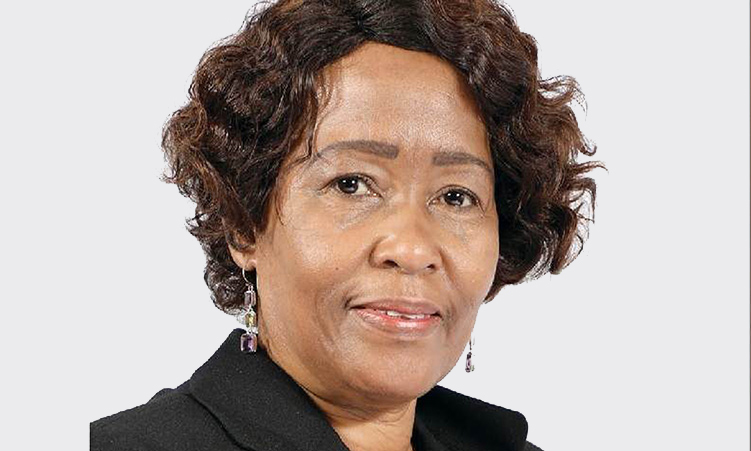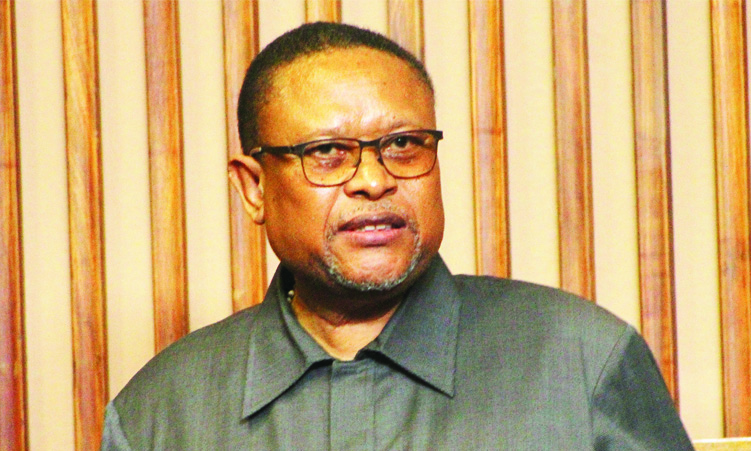REVENUE windfalls should be used to repay national debt, a member of the official opposition party told Parliament on Wednesday – prudent fiscal policies should be the order of the day instead of hoping for such windfalls.
With the start this week of debate on the National Budget, CoD Member Tsudao Gurirab complained that his party had only received the second Budget document, the Development Budget book, on Wednesday. “It makes it difficult to contribute meaningfully, when this important second Budget book only arrives at the start of the debate,” he said.Gurirab noted that the Budget surplus of N$599 million was not a result of prudent fiscal policy, but rather of unexpected higher income from the SACU customs union and proceeds from the sale of MTC shares.The Budget should reflect long-term strategic planning and the Vision 2030 development plan, otherwise it was “not worth the paper it was printed on”.Gurirab said public debt had grown over the last decade despite Government’s own target for this not to exceed 25 per cent of the Gross Domestic Product (GDP).It is estimated to reach 31,4 per cent of GDP at the end of the 2007-08 financial year – down from the current 34 per cent, but still not reaching the 25 per cent target.”The prudent thing to do, therefore, is to use the windfall to retire part of the Government debt,” he recommended.”It is by investment in infrastructure and productive sectors that we can ensure growth in revenue.And for this reason we welcome proposed investments in infrastructure and the productive sectors of our economy,” he said.”We welcome the much-vaunted Green Scheme in the agricultural sector, except there appears to be little to report on its progress after more than N$50 million has been expended on it.We believe that particularly the Kavango and Caprivi regions are ideal for the objectives of the Scheme as designed – namely to contribute to food security whilst creating jobs for thousands of Namibians, thereby contributing to improving household living standards.”Turning to land reform, Gurirab said Government had since its first Cabinet Retreat in 2003 told the nation that “land reform lies at the core of addressing poverty in our country”.The same retreat decided to allocate N$100 million annually to buy land for resettlement.”In practice, however, Government has been allocating N$50 million annually to purchase land, which in most cases has been under-utilised.This is to be regretted.Government plans to allocate N$50 million for the new 2007-08 financial year and a total of N$150 million by March 2010 to purchase land.”In fact, Government plans no resettlement programmes for the entire period until then, but spends N$9,6 million on the existing resettlement programmes in the new financial year and about N$16 million in total until March 2010 [excluding the funds to buy farms],” he said.Government would, however, spend more than three times that amount over the same period on building ministerial headquarters for the Lands Ministry.”The only bright light in Government’s land reform programme is the development of unused and under-utilised communal land into small-scale commercial farms,” the CoD leader said.”We believe that properly executed, land acquisition and resettlement will greatly contribute towards addressing poverty, destitution and squalor visited upon a great mass of our people.”For now, Government’s resettlement programme amounts to little more than creating pockets of communal land in established commercial areas.That is, of course, after the nomenclature have made a rich picking of the best farms,” he criticised.If Government’s “opportunistic” pro-poor policy was to mean anything, it had to implement its own land policy and once the beneficiaries were on the farms, they needed support to become successful.The CoD welcomed the Finance Ministry’s announcement to raise the tax threshold from N$24 000 to N$36 000 but it was long overdue and could have been announced two years ago already, the CoD politician said.Gurirab also praised Government for increasing the threshold for tax deductions for pension contributions from N$30 000 to N$40 000 a year, but he said it was time to review the “antiquated” Pension Funds Act.He then said his party had expected announcements on measures Government would undertake to address problems experienced with State-owned enterprises (SOEs), since the SOE Act had been adopted in 2003 already.Several SOEs still needed continued financial bailouts to keep them afloat, he pointed out.”It makes it difficult to contribute meaningfully, when this important second Budget book only arrives at the start of the debate,” he said.Gurirab noted that the Budget surplus of N$599 million was not a result of prudent fiscal policy, but rather of unexpected higher income from the SACU customs union and proceeds from the sale of MTC shares.The Budget should reflect long-term strategic planning and the Vision 2030 development plan, otherwise it was “not worth the paper it was printed on”.Gurirab said public debt had grown over the last decade despite Government’s own target for this not to exceed 25 per cent of the Gross Domestic Product (GDP).It is estimated to reach 31,4 per cent of GDP at the end of the 2007-08 financial year – down from the current 34 per cent, but still not reaching the 25 per cent target.”The prudent thing to do, therefore, is to use the windfall to retire part of the Government debt,” he recommended.”It is by investment in infrastructure and productive sectors that we can ensure growth in revenue.And for this reason we welcome proposed investments in infrastructure and the productive sectors of our economy,” he said.”We welcome the much-vaunted Green Scheme in the agricultural sector, except there appears to be little to report on its progress after more than N$50 million has been expended on it.We believe that particularly the Kavango and Caprivi regions are ideal for the objectives of the Scheme as designed – namely to contribute to food security whilst creating jobs for thousands of Namibians, thereby contributing to improving household living standards.”Turning to land reform, Gurirab said Government had since its first Cabinet Retreat in 2003 told the nation that “land reform lies at the core of addressing poverty in our country”.The same retreat decided to allocate N$100 million annually to buy land for resettlement.”In practice, however, Government has been allocating N$50 million annually to purchase land, which in most cases has been under-utilised.This is to be regretted.Government plans to allocate N$50 million for the new 2007-08 financial year and a total of N$150 million by March 2010 to purchase land.”In fact, Government plans no resettlement programmes for the entire period until then, but spends N$9,6 million on the existing resettlement programmes in the new financial year and about N$16 million in total until March 2010 [excluding the funds to buy farms],” he said.Government would, however, spend more than three times that amount over the same period on building ministerial headquarters for the Lands Ministry.”The only bright light in Government’s land reform programme is the development of unused and under-utilised communal land into small-scale commercial farms,” the CoD leader said.”We believe that properly executed, land acquisition and resettlement will greatly contribute towards addressing poverty, destitution and squalor visited upon a great mass of our people.”For now, Government’s resettlement programme amounts to little more than creating pockets of communal land in established commercial areas.That is, of course, after the nomenclature have made a rich picking of the best farms,” he criticised.If Government’s “opportunistic” pro-poor policy was to mean anything, it had to implement its own land policy and once the beneficiaries were on the farms, they needed support to become successful.The CoD welcomed the Finance Ministry’s announcement to raise the tax threshold from N$24 000 to N$36 000 but it was long overdue and could have been announced two years ago already, the CoD politic
ian said. Gurirab also praised Government for increasing the threshold for tax deductions for pension contributions from N$30 000 to N$40 000 a year, but he said it was time to review the “antiquated” Pension Funds Act.He then said his party had expected announcements on measures Government would undertake to address problems experienced with State-owned enterprises (SOEs), since the SOE Act had been adopted in 2003 already.Several SOEs still needed continued financial bailouts to keep them afloat, he pointed out.
Stay informed with The Namibian – your source for credible journalism. Get in-depth reporting and opinions for
only N$85 a month. Invest in journalism, invest in democracy –
Subscribe Now!










